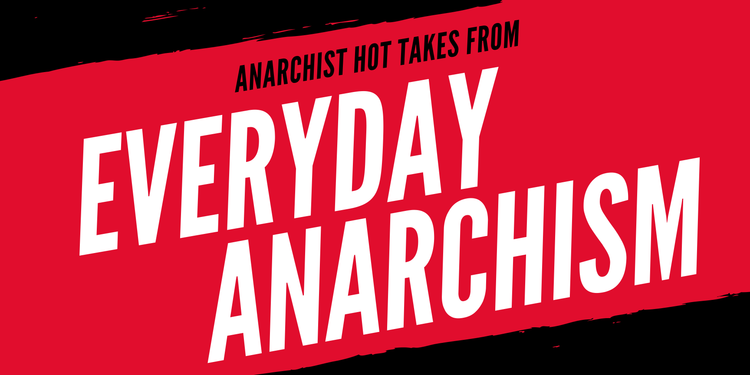Policy is the Problem

This week’s take comes not in response to an article recently published on the internet but to an article published in The New Yorker back in February of this year. Like many New Yorker readers, I never seem to quite be able to keep up with the magazine. In fact, I canceled my subscription months ago, but still haven’t finished reading all the ones I received.
Which is why I was reading through a February issue this week. I was struck by the incessant focus on policy in an article called “The Damage” - it was about the damage Trump had done to immigrants and the immigration system during his administration, and how that damage had been done through so many minor policy changes that no one would ever be able to undo them all. Ultimately, the hero of the article is a professor named Lucas Guttentag[1]. Guttentag is described in the article as a master of “technocratic minutiae,” the tiny changes in law and policy which end up having enormous effects on the lives of people. No one but an insider (Guttentag is a Yale law professor AND a Stanford law professor AND a federal bureaucrat) could understand how big and terrible these seemingly minor changes made by Trump could be.
Seen from the angle of Ivy League professors and elite magazine writers (the author of the article, Sarah Stillman, is an elite magazine writer AND an Ivy League professor), the story is one of straightforward policy villainy by Trump and the underappreciated efforts of those trying to stop him. Stillman doesn’t open her article with Guttentag; instead, the opening paragraph greets us with the story of Maria, a fourteen-year-old asylum seeker under threat of deportation. Maria can only be saved by lawyers, but the lawyers can’t fight the rules that allow Maria’s deportation; they might be extralegal “regulatory dark matter” contained entirely within the executive branch[2]. But since there’s no clear record of these dark matter regulations, a future Democratic administration (which came to be the Biden administration), can’t repeal them without a careful tracing of the dark matter by a master of technocratic minutiae. Enter Lucas Guttentag, who located and tracked the dark matter with a team of volunteer law students (Yale, not Stanford, if you believe in such a distinction) and is now volunteering with the Biden administration to make sure that the dark matter is located and the damage undone. Hooray!
Except...I don’t actually think technocratic minutiae has anything to do with this story. The first red flag is the person Stillman describes as doing all this is, in fact, a known buffoon who probably doesn’t know the words technocratic or minutiae: “Trump made aggressive use of executive power in the realm of immigration.” Unlikely. The article spends some time with Stephen Miller, who is certainly more competent than Trump, but still no master of minutiae. And the article reveals that the term regulatory dark matter was coined by a libertarian scholar about all the changes made by...the Obama administration! So if these regulations are so powerful, why did the Obama administration’s policy boffins (including hero Lucas Guttentag) fail to create dark matter powerful enough to withstand Stephen Miller?
So what if regulatory dark matter doesn’t really matter? What if there is no policy solution? What if assholes in presidential administrations just basically do whatever they want to, and they get away with it unless someone stops them? And regulations don’t stop them; people (whether other members of the administration, judges, protesters, lawmakers, etc.) stop them. And that means that anyone and everyone can join the fight, without an Ivy law degree (or a law degree at all)! But that also means that there’s not actually a secret “wood-panelled” room where only Yale-trained policy geniuses can solve the world’s problems. And there’s also no need for Columbia journalism professors to write thousands of words explaining how the most important thing in the world is the work of Yale-trained (or Duke, Stanford, Columbia, etc.) policy geniuses. I doubt The New Yorker is ready to reckon with such a reality.
After I finished that article, I turned to the next one. It’s about a genius of technocratic minutiae trying to use sophisticated tools to create policy solutions within the Catholic Church. Sigh.
Guttentag is a law professor at Yale and Stanford, which I found quite impressive. The hero of a New Yorker article is frequently a professor at Stanford or an Ivy. But making your hero a law professor at both Yale and Stanford seemed like some kind of meritocratic trifecta. Perhaps someday an art history professor at a community college will be the hero of a New Yorker article. But no, that is asking for too much. ↩︎
You will be saddened to hear that Maria is not saved by the intervention of Lucas Guttentag but simply because her nonprofit lawyer Hannah Flamm realized that ICE was breaking the law and got a judge to “temporarily halt Maria’s removal, granting her time to spell out her legal claims.” So actually Maria’s lawyers could fight regulatory dark matter. ↩︎




